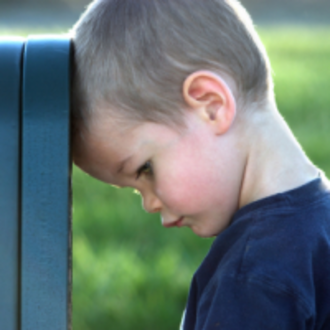Shop
01873
https://www.under5s.co.nz/shop/Hot+Topics+Articles/Health+%26+Wellbeing/Preschoolers/Is+your+child+depressed.html
Is your child depressed?
|
Do you think your child is depressed? Childhood depression rarely has a single cause and it’s usually a combination of factors that depend on your child’s innate coping abilities. We take a look at the causes of childhood depression, signs and symptoms, getting help, treatment, supporting your child and improving communication.
|
You might also be interested in ...
6 Ways to support parents with premature babies
If someone you know has recently had a premature baby there are lots of things you can do to help out and to make the parents' lives just that little bit easier during the first few weeks. From celebrating the birth, to buying gifts and cards, making meals and offering more practical help so that they can focus on their baby.
Colic - symptoms, causes & treatments
Does your baby suffer from colic? Colic in newborns and young babies is not uncommon. We take a look at the symptoms of colic, possible causes that make infants colicky and the treatment options available to relieve baby colic.
join usJoin us on social media for all our latest news. |
sign upSign up and receive our latest newsletters. |
|







Childhood depression rarely has a single cause and it’s usually a combination of factors that depend on your child’s innate coping abilities.
We take a look at the causes of childhood depression, signs and symptoms, getting help, treatment, supporting your child and improving communication.
Childhood depression
There may not be an obvious cause for childhood depression; however, it can be triggered by stressful life events like bullying, family problems or bereavement.
Children are also more likely to become depressed if there is a family history of depressive illness, but building resilience and family support will reduce that risk.
Depression rarely has a single cause and it’s usually a combination of factors that depend on your child’s innate coping abilities.
A competent child with a range of coping strategies is less vulnerable to depression.
However, anxious children with low self-esteem and other problems tend to become depressed more easily.
Signs & symptoms of childhood depression
It’s not always easy for parents to know the difference between ‘normal’ moods and behaviour, which can include sadness or irritability and emerging depression.
However, if your child is depressed, often there are obvious and persistent changes in their thinking, feelings and behaviour that profoundly affect their enjoyment of life.
Pre-schoolers will usually show their feelings in terms of behaviour, because they are unable or find it difficult to verbalise their internal world.
Very young children are unlikely to talk about their feelings, so it’s difficult for parents to know what’s happening in their child’s mind.
Children generally become more quiet and withdrawn, losing their vitality and interest in all the things that kids usually love, like playing with toys and friends, going to parties etc.
On rare occasions, depression in children is associated with other medical problems, such as insulin-dependent diabetes, post-traumatic stress disorder or a severe phobia.
Getting help for childhood depression
If you’re worried about your child, it’s important to get help as soon as possible, to prevent the symptoms escalating.
Start by seeing your doctor to talk over the issues and to ask for referrals to other experts in children’s mental health who can help with treatment.
Treating childhood depression
Regardless of what causes depression, it’s important to seek treatment to help your child recover from what can become a long-term, debilitating condition.
The first line of treatment for young children is either family therapy, if the depression is related to family stress, or individual cognitive behaviour therapy.
Behavioural therapy includes scheduling pleasant events and rewarding children for getting back into life, while cognitive therapy identifies unhelpful thinking patterns and replaces these with a more optimistic way of looking at the world.
Antidepressant medication should not be used as a single first-line treatment for children with mild to moderate depression.
If medication is deemed necessary by a child mental health professional, the treatment will be more effective when combined with psychological therapies.
Supporting your child
Family support and a harmonious home environment can make a big difference to how your child manages their depression. These simple strategies can help a depressed child feel more relaxed:
Improving communication
It’s important for parents to empathise with their little one if their child appears withdrawn and quiet, or anxious and irritable, while struggling with low self-esteem, lack of motivation and dark, gloomy thoughts.
Home is a safe haven, so nurture those feelings of security and connectedness:
Tell your friends
Like the article you've just been reading? Click on the Refer A Friend link at the top of the page and send the details to friends who might like to read it too.More Hot Topics for you to enjoy
- Helping preschoolers cope with loss and grief
- Reasons why your child may be wetting the bed and how you can help
- Anxious pre-school children
Image source: janetlansbury.com